Year 9 Individual Project
Home › Forums › Inquiry and resource design › Year 9 Individual Project
- This topic has 4 replies, 2 voices, and was last updated 5 years, 1 month ago by
 Lucy Breag.
Lucy Breag.
-
AuthorPosts
-
12th November 2020 at 2:51 pm #28722
We are in the process of reviewing the Year 9 (Grade 8) Individual Project, which is an ideal opportunity to reflect on what the Individual Project is, and why it matters.
Like the Year 9 FOSIL Inquiry Skills Project, the Year 9 Individual Project has existed in some form for more than 20 years, perhaps since the foundation of the Smallbone Library in 1994, and both consolidates and builds on work done in the Inquiry Skills Project (previously Research Skills Project).
The Individual Project started out as an opportunity for students to produce, in their own time and with minimal guidance, a 1,500-word written report on any topic of their choosing, accompanied, if appropriate, by an artefact. While all students eventually submitted something, understandably, and predictably, few students were both willing and able to take full advantage of this opportunity to explore in depth something of genuine personal interest to them. Rather, and in the absence of a structured process with built-in support, the majority of students tended to produce something that was both rushed and unoriginal, or, worse, heavily plagiarized.
I do not recall the Library being involved with the Individual Project when I joined in 2008, other than to provide resources to those students who were eager enough to want them, or desperate enough to need them (although most of these students tended to rely heavily on the internet for their research).
By 2009 we had produced a Research Guide to assist students with this aspect of the Individual Project (see below, and my apologies for the inexplicable use of Papyrus), which by 2013 had introduced structure into the process (see below), and which I will expand on later.
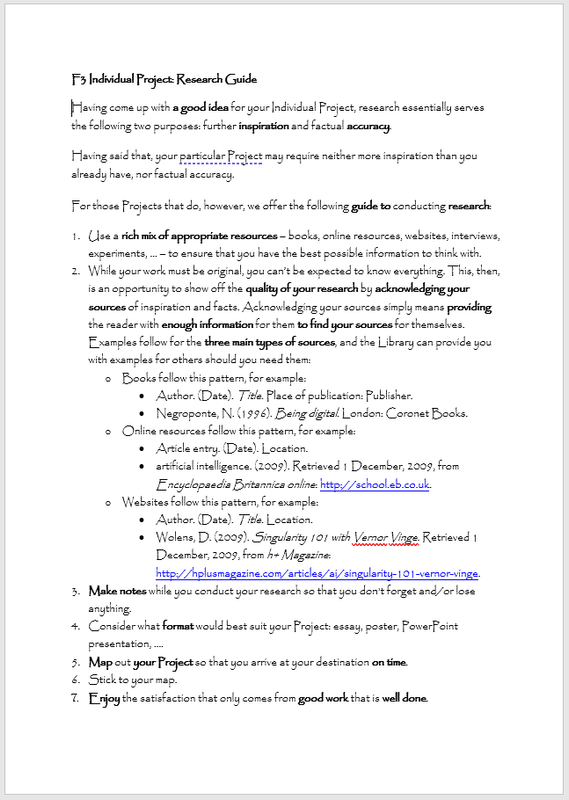
 13th November 2020 at 8:32 pm #28939
13th November 2020 at 8:32 pm #28939The need to structure the process, which I now recognize as being an inquiry process, seems like it ought to have been obvious, but it clearly wasn’t.
The clearest way to illustrate this is with our Extended Essay timeline for Year 12 (Grade 11) IB Diploma students, which similarly structures the inquiry process, but also, crucially, includes a number of targeted interventions to support students at key points during the inquiry process (see below).
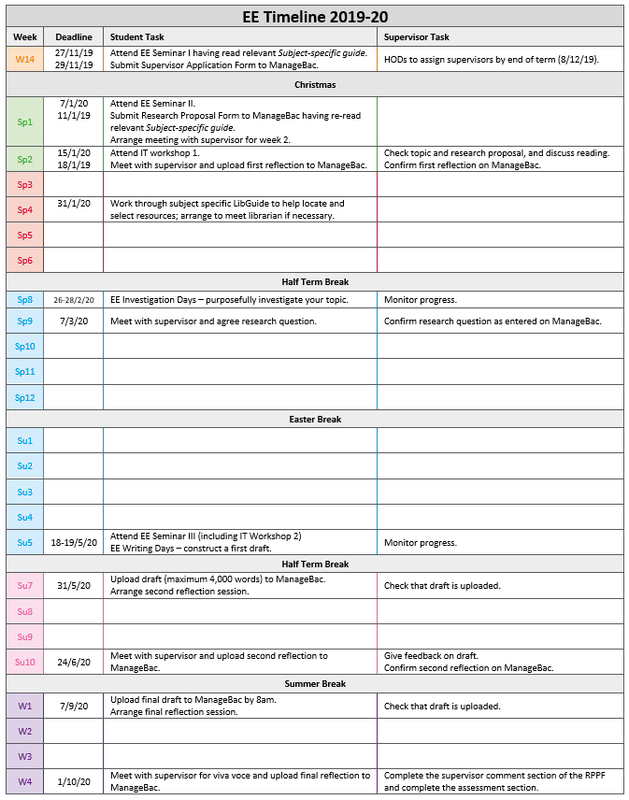
Even with this additional structured support in place, the Extended Essay (or EPQ) remains a substantial and challenging undertaking students who are only 16, and it is difficult to see how students who are 3 years younger could conceivably manage with any less structured support when we were expecting essentially the same undertaking of them, only on a smaller scale.
While the evolution of the Individual Project would be both interesting and instructive, it would also be overly time-consuming now. It is, however, worth noting that Barbara Stripling’s model of the inquiry process, which is what FOSIL is based on, is supported by a continuum of “the literacy, inquiry, critical thinking, and technology skills that students must develop at each phase of inquiry over their years of school and in the context of content area learning” (2017, p. 52). Not only did this mean that students in Year 9 and Year 12 who were undertaking work that was essentially the same in nature were doing so using the same process, but the underlying continuum of skills enabled us to develop these skills systematically and progressively from Year 9 up to Year 12 and 13, and from Year 9 down to Year 7 and 6.
By 2020, the Individual Project had evolved to include greater support for the inquiry process through an Inquiry Journal rather than only an Investigative Journal, as well as through their Tutorial Programme (see below).
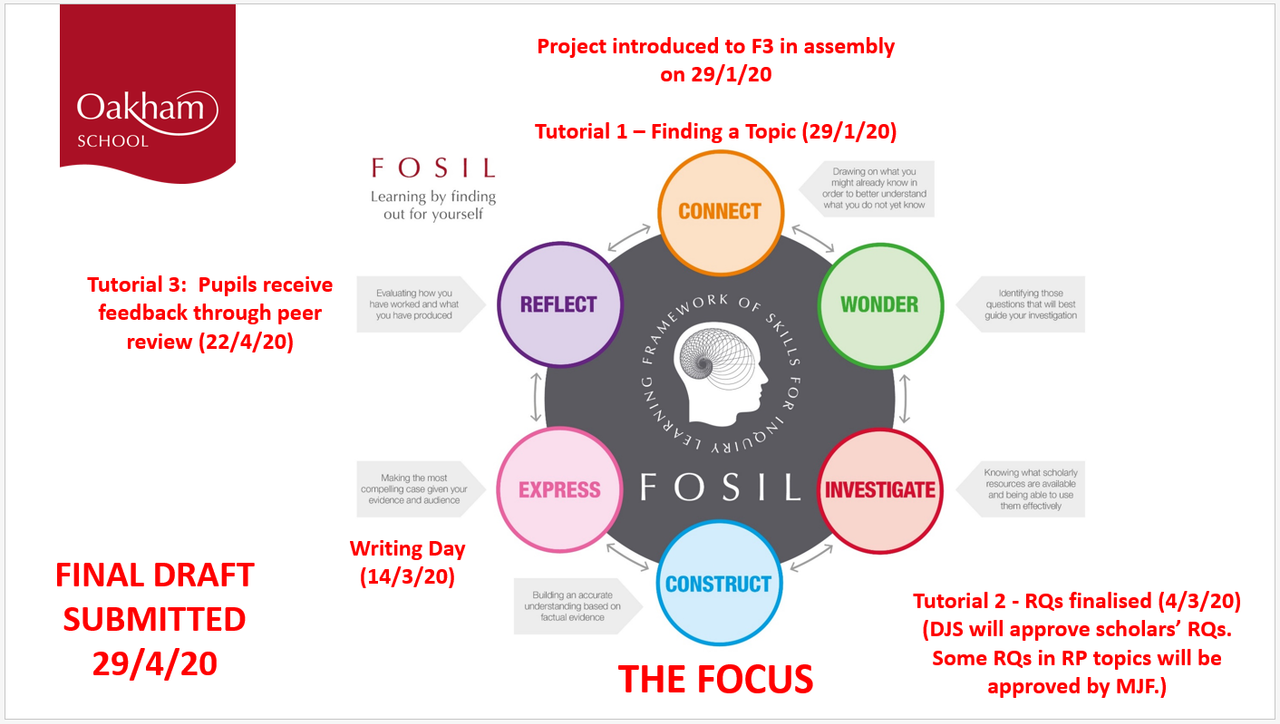
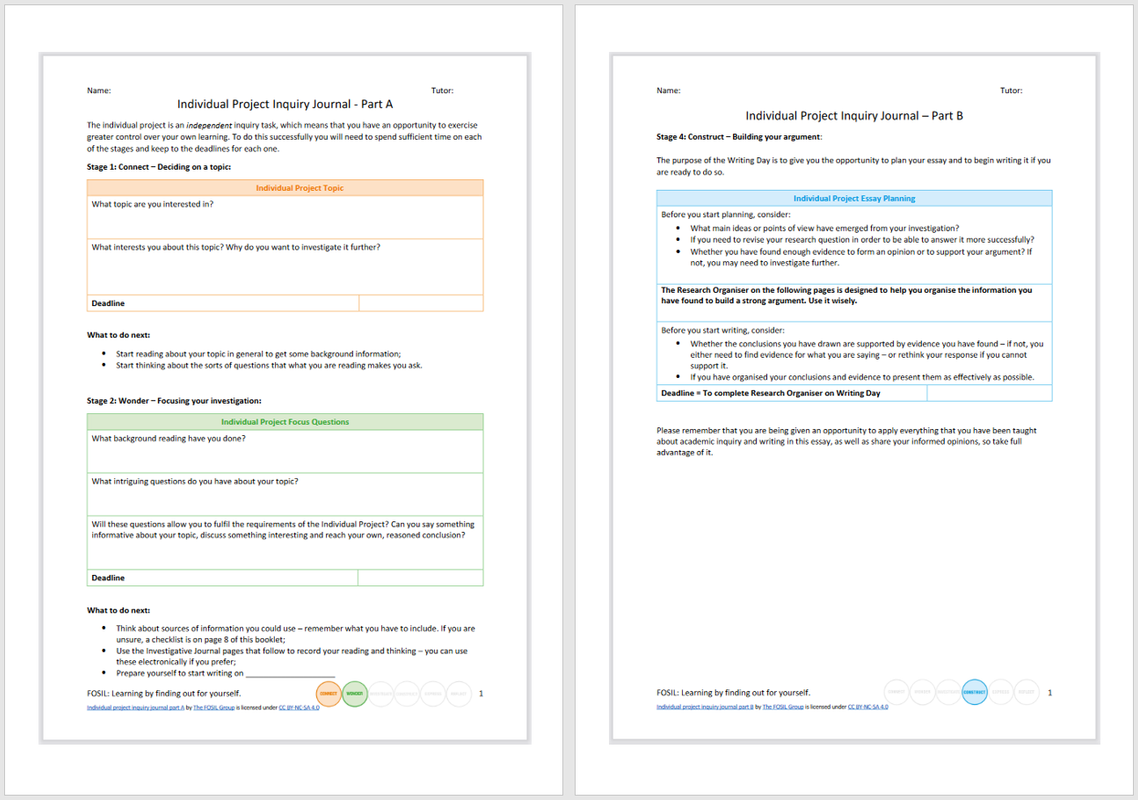
The full Inquiry Journals may be downloaded from the Resources page (see below).
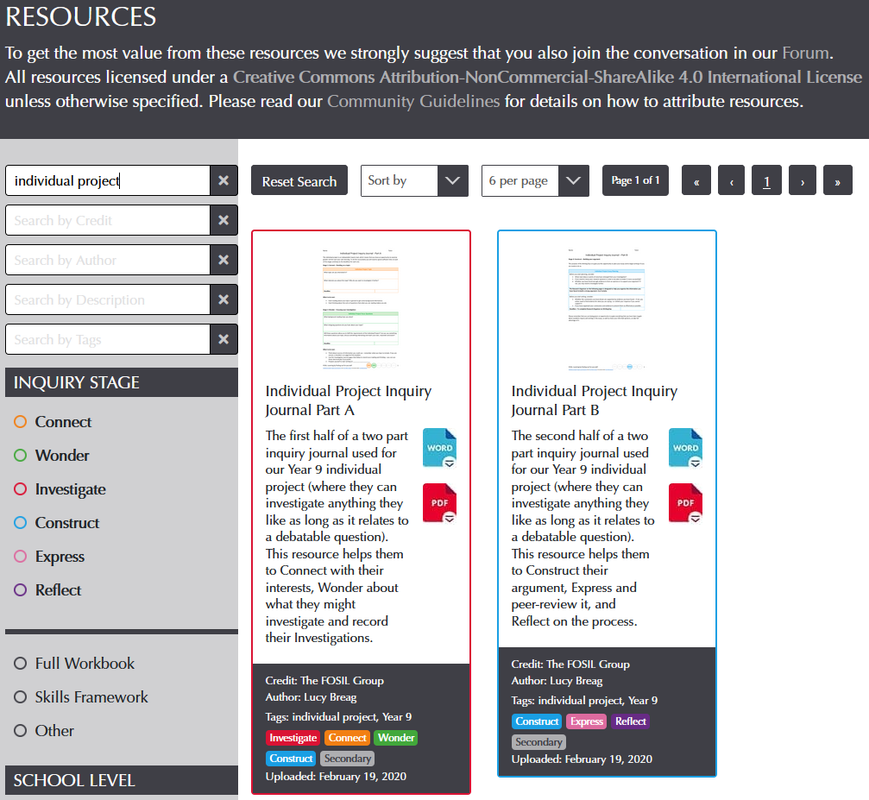
I will detail the Individual Project more fully later.
—
Stripling, B. (2017). Empowering Students to Inquire in a Digital Environment. In S. W. Alman (Ed.), School librarianship: past, present, and future (pp. 51-63). Lanham: Rowman & Littlefield.
16th November 2020 at 1:03 pm #29329The Individual Project essentially asks students to identify and investigate a topic of intellectual interest that can be viewed and discussed from different perspectives (see below, which may be found in the Inquiry Journal – Part A).
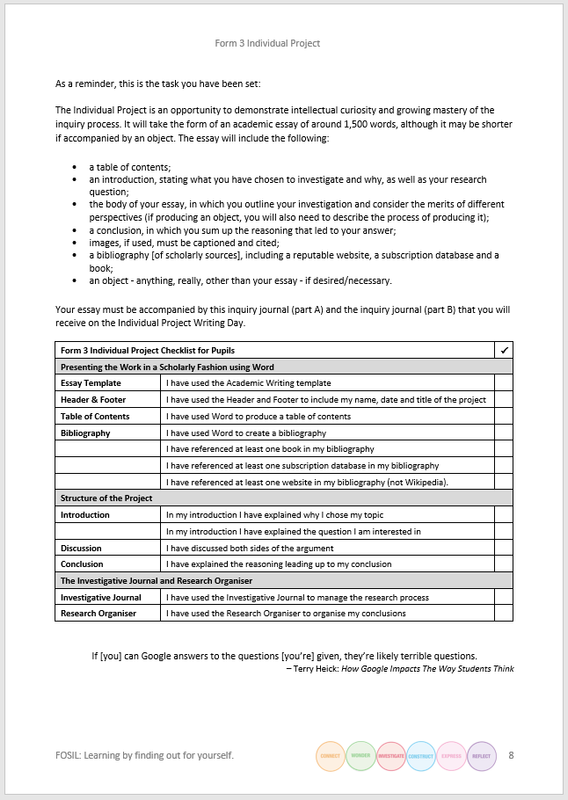
The PPT presentation that accompanied Tutor Training may be downloaded from here.
Lesson plans for the three Tutorial sessions may be downloaded from here.
The PPT presentation that accompanied the Writing Day may be downloaded from here.
The LibGuide that accompanied the Writing Day may be accessed from here (see below).
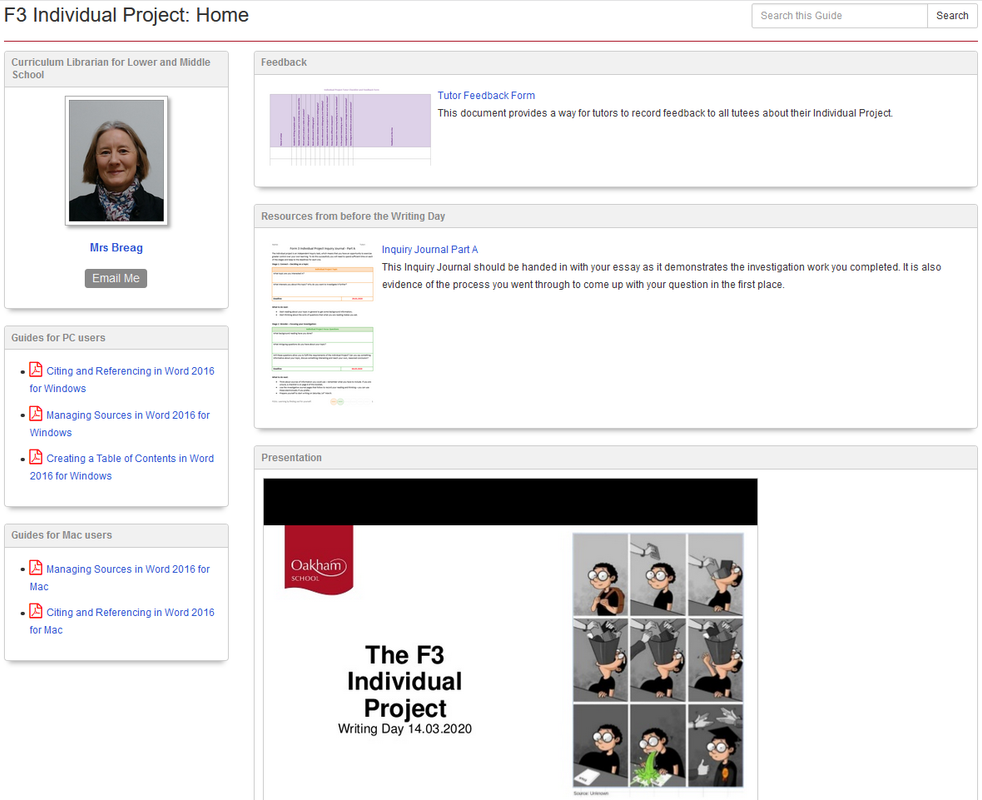
Schools closed due to the pandemic on 20/03/2020, so students completed the Individual Project under very challenging conditions. Lucy, who read all of the essays, commented on the winning essay that the student “has done exactly what she was asked to do, her essay is really well structured and reads without too much effort on the part of the reader, she has written about something she is clearly very interested in, and satisfies all of the criteria too”.
30th November 2020 at 2:50 pm #31482It is a pleasure to share the winning essay, which, as discussed above, was completed under very challenging conditions. It is worth remembering that this is the result of largely independent learning in Year 9 (Grade 8), applying skills from the Year 9 FOSIL Inquiry Skills Project.
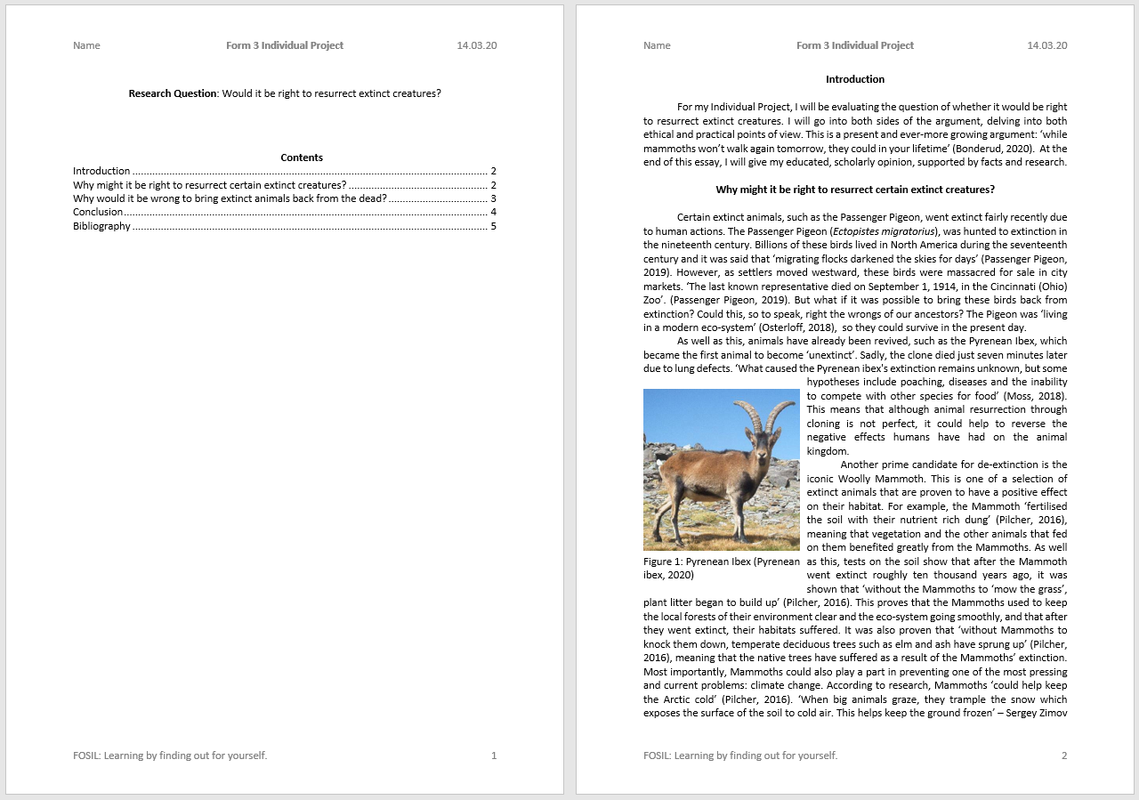
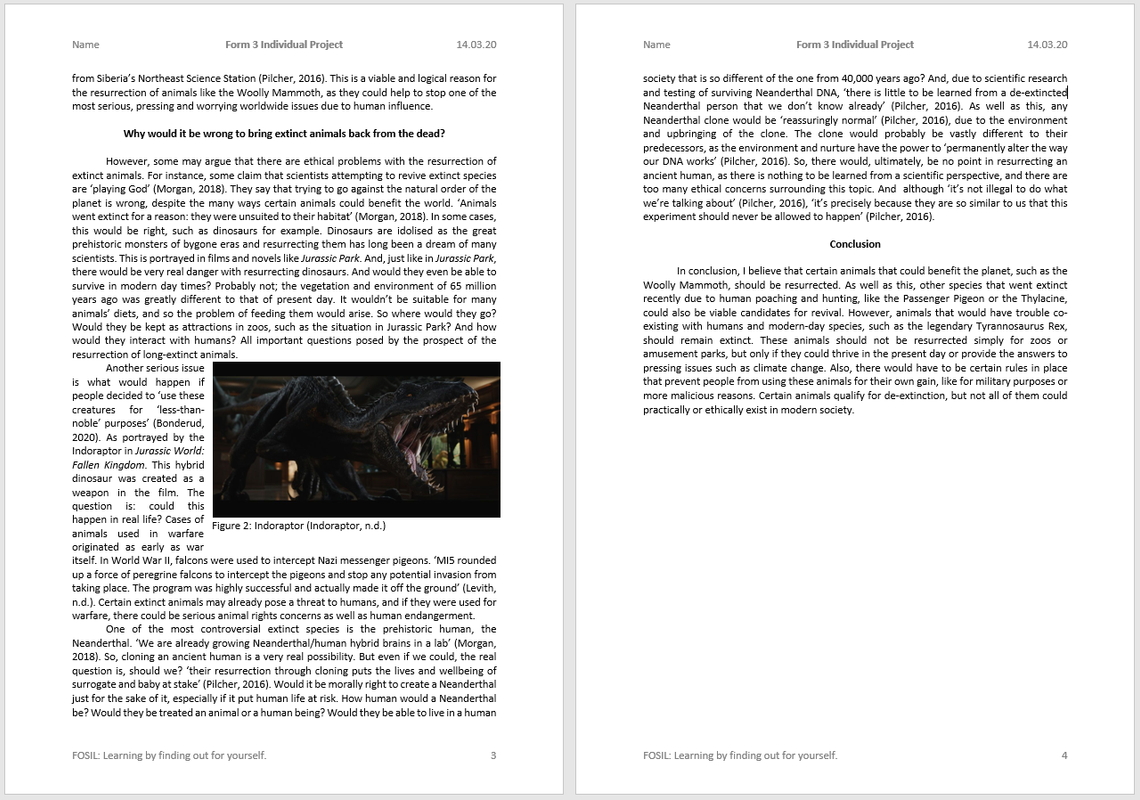
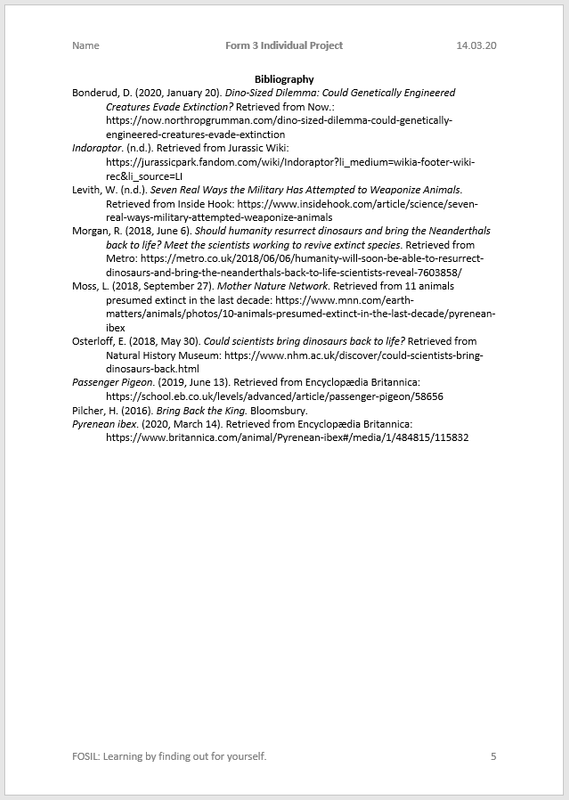 11th January 2021 at 12:36 pm #34108
11th January 2021 at 12:36 pm #34108As we begin the process of the Individual Project once again with a new cohort, we are also beginning another school closure so the launch will have to take place remotely. This clearly adds another level of complexity as not only do we have to ensure that the Year 9 pupils know what they are doing, why they are doing it, and how they should go about doing it, but we also have a new set of Year 9 tutors to introduce to the project – and in some cases, to FOSIL itself. At least last year we had reached EXPRESS with everyone having written an initial draft before the first lockdown began. All that was needed remotely therefore was reviewing, polishing and reflecting. Easy really in retrospect!
I was really excited by the resources produced last year, as I felt they helped pupils through the inquiry process in the clearest way yet, so it was a great shame not to have been able to complete the whole process with the pupils in school. These resources definitely made the prospect of finishing the project online far less daunting though and led to some truly exceptional projects being submitted despite the truly exceptional circumstances. Thankfully for the project and everyone involved in its development, the outcome was so successful that it was quickly decided that this year’s project would run to the timetable that we planned in December despite the current situation, and that it would add value to the distance learning experience of our Year 9s rather than being an unnecessary burden.
I will post more as we progress but with tutor training planned for next week and a launch to pupils the week after, I must get my skates on.
-
AuthorPosts
- You must be logged in to reply to this topic.


